Explained: WTF are Bristol’s local elections all about?
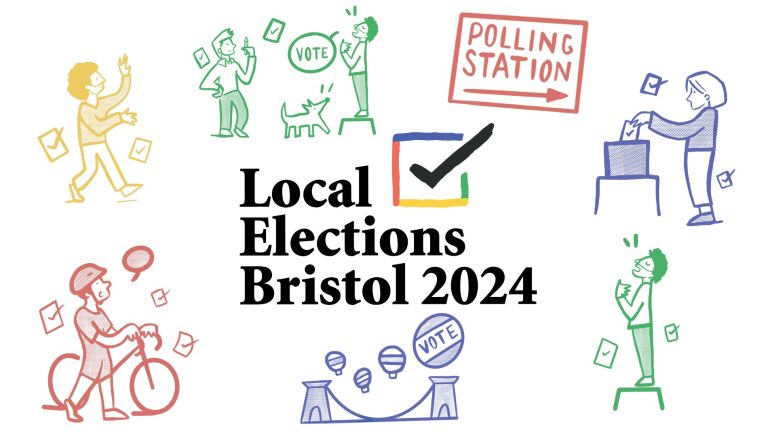
On 2 May, Bristol goes to the polls. But what are we actually voting for – and why should you even care?
Later this year, it’s the big one – a general election will likely bring a change of government. But before that, we’ve got local elections in Bristol, where we’ll be voting for 70 councillors to represent us and run the city.
Unlike last time in 2021, we won’t be electing a mayor to run the show, because we – or at least the 28% of citizens who felt strongly enough to turn out – voted in a referendum two years ago to sack that system off. This means the councillors you’re voting for will have more power this time around.
But what’s it all about? Below we’ve broken it down for you.
What am I actually voting for?
Bristol is divided up into 34 wards, which are represented by either one, two or three councillors depending on the size. On 2 May, you’ll be voting for your local councillors who will represent your area and vote on council decisions.
For the last 12 years, we’ve had a mayor running the city, but this time, whichever political party has the most councillors voted in will choose a leader. At the moment, that’s the Greens, who have 25 councillors to Labour’s 23.
There’s also an election of the police and crime commissioner for Avon and Somerset. In 2021, this was won by Tory Mark Shelford. From policing of protests to tackling knife crime or even the shocking cases of misconduct exposed by Channel 4 Documentary To Catch A Copper, policing in Bristol and the wider region has rarely fallen out of the headlines in recent years.
Why should I bother?
Usually turnout at local elections is much lower than at general elections, but that doesn’t mean they aren’t super important. From making big changes like the Clean Air Zone, which has proved controversial for charging the most polluting vehicles for driving into central Bristol, deciding whether to spend millions of pounds on big projects like refurbishing Bristol Beacon or setting targets around how many affordable homes get built, who’s in power really does matter.
Unlike the general election where many people feel like their vote is wasted due to our first past the post system, only a handful of votes at local elections can make a difference. Even though the voting system is similar, because a ward is a much smaller area, your vote makes more of a difference. In 2021, there were six wards where less than 100 votes for a single candidate would have won a different party the seat. Your vote really counts.
What does the council actually do?
When people think of Bristol City Council, what comes to mind might be their bin collections, or rolling their eyes as council tax goes up every year. But in fact, local government influences your life in many other ways.
As well as organising the care of vulnerable adults and children, and being responsible for council housing, parks, sports and leisure centres, cycle lanes, pavements and roads, public transport, and bins and recycling, the council also develops long-term strategies for massive things like tackling climate change or being prepared for major flooding.
But there are also things out of the council’s hands. Bristol’s buses have rarely been out of the headlines in recent years, with unreliable services and routes being cut altogether while First Bus continue to profit. But Bristol City Council only has limited say over this, because transport is mostly the responsibility of the regional government, the West of England Combined Authority.
And when it comes to housing, arguably the city’s biggest issue over the last decade, Bristol is at the mercy of central government, which sets the rules over how much money there is to build affordable homes – not much – and around other things like rent controls (so far not allowed).
Compared with cities in other similar countries, Bristol has little power from Westminster. This means that the council is often sorting out a mess when really national reforms are needed to make a big difference. And that’s at a time when the number of backroom staff at the council has been slashed over the last 10 years of austerity.
It’s the Cable’s job to point out when the council has messed up, and sometimes they do not disappoint. But it’s also important to acknowledge that mammoth and unforgiving task of running a city like Bristol in 2024.
Why are we binning the mayoral system?
Just a decade after Bristol decided in 2012 to try out a new mayoral system, the city changed its mind again in a referendum. Well, I say the city, but less than 30% of the electorate – or around 50,000 people – actually bothered to vote two years ago. Even fewer voted the first time around.
Those in favour of having a mayor often say it’s the best way to break the deadlock and get things done and it’s also important to have one, visible person to point the finger at. But critics say one person shouldn’t have so much power, and that councillors are often sidelined by the mayor, creating a lack of transparency and scrutiny.
The idea is that giving councillors more power will be more democratic, make it easier for parties to work together and improve scrutiny of big decisions by the council leader.
Of course with the election approaching, the different parties are currently making digs and scoring political points. When money is tight and there aren’t easy solutions available and we’re coming off eight years of often hostile relations between Labour and the others, a utopian vision of councillors collaborating without any hiccups feels unlikely.
From May, we will have to wait and see if the new system allows councillors to work better together and get shit done.
How will the new committee system work?
So what’s the new system we’ve opted for? Under the committee system, 70 councillors are elected in the same way as they are now. Councillors then elect a leader of the council, who is usually the leader of the largest party.
Instead of a directly elected mayor, the council leader, elected and removable by full council, will have diminished powers and no veto authority over committee decisions.
Eight ‘policy committees’ with proportional party representation will convene every six to eight weeks. They’ll be responsible for all ‘key decisions’, encompassing significant financial or legal risks, city-wide impacts, and service delivery changes.
These will be: Adult Social Care Committee; Homes and Housing Delivery Committee; Public Health and Communities Committee; Economy and Skills Committee; Strategy and Resources Committee; Children and Young people Committee; Transport and Connectivity Committee; Environment and Sustainability Committee.
Each committee will have a chair and vice chair responsible for agendas, policy leadership, and media appearances. The full council determines the chair and vice-chair of policy committees, allowing a majority party to claim all chairs.
Crucial powers, including amending the constitution, approving budgets, and electing or removing the council lead or committee chairs, remain with the full council.
Decisions can also be challenged by 10 councillors from at least two parties, leading to an ‘escalation panel’ with potential outcomes such as referral to full council, or a recommendation against implementation.
The new constitution will be reviewed after six months, giving the council an opportunity to adapt and adjust if any new ways of working turn out to be impractical or imperfect. Later down the line, more powers will be devolved to local communities across Bristol, with nine area committees planned to have a say on issues like highways, bins and parks.
Despite getting more power under the new system, councillors will get paid less than £17,000 a year each, which is more than before, but low enough that many of them will have to work part time alongside representing their constituents. The newly created role of leader of the council will get three times that – just over £50,000.
What were the results last time?
In 2021, the Green Party gained 13 seats to become the joint largest party on the council with Labour. This included winning in traditional Labour strongholds, such as Easton, Lockleaze and Lawrence Hill. The Tories and Lib Dems kept their number of seats – 14 and eight respectively.
After Labour’s Marvin Rees was re-elected as mayor, there were calls for him to work more closely with the Greens after their growth in support, but he did not give them any seats in his cabinet.
In the three by-elections since then, the Greens gained an extra seat to become the largest party, while two councillors left the Lib Dems to set up the Knowle Community Party.

Who’s the favourite to win this time?
The Greens and Labour are currently the two biggest parties on the council. Labour may lose votes simply for being in power during a difficult eight years of austerity and the pandemic, while the Greens will be untainted by being in opposition during that time. But the flipside of this is that the Greens are unproven as a party in power.
The last time Bristolians voted was in a national context of Boris Johnson surfing a wave of post-pandemic popularity, while Labour were struggling under Keir Starmer. The opinion polls could not paint a more different picture now, with one prediction being that the Tories are so unpopular right now that they risk losing half their council seats across the country.
Despite the fact that Keir Starmer has received constant criticism from the left of his party, including some who have cancelled their memberships in protest, it seems that Bristol Labour will benefit from the party’s big lead in national opinion polls. After all, not everyone will vote based on what the council has or hasn’t done over the last eight years.
How do I register to vote?
You have until 16 April to register to vote – it’s dead easy. All you’ll need is your National Insurance number, date of birth and address. Register to vote here
What?! I have to bring ID?
For the first time in Bristol, photo ID is now needed at polling stations following the government’s introduction of a controversial new law to clamp down on electoral fraud.
Accepted forms of ID include a passport, driving licence, or older person’s bus pass.
If you don’t have any form of ID you can still apply for free identification online called a voter authority certificate. The deadline to apply for this is 24 April.
You don’t have to show any ID if you vote by post, but you need to apply to do so by 17 April.
Throughout April, we’ll be grilling the candidates, cutting through any bullshit and explaining what’s at stake at the election. Check out the series page for all our election coverage.


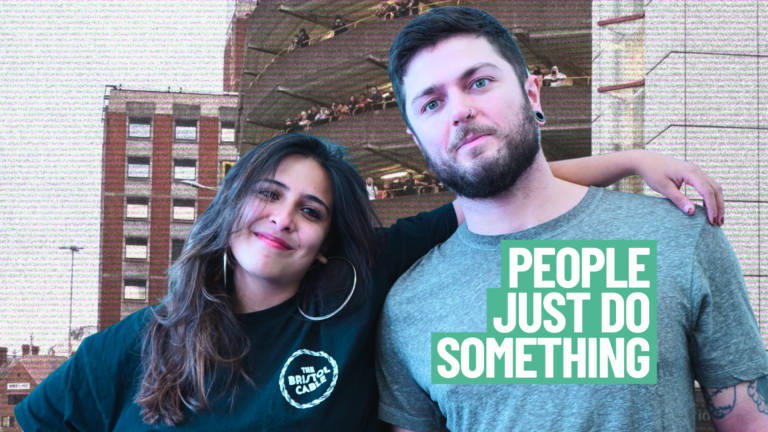


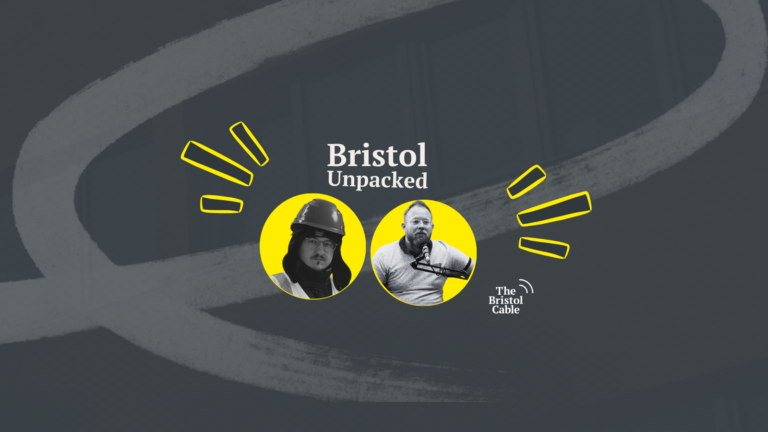


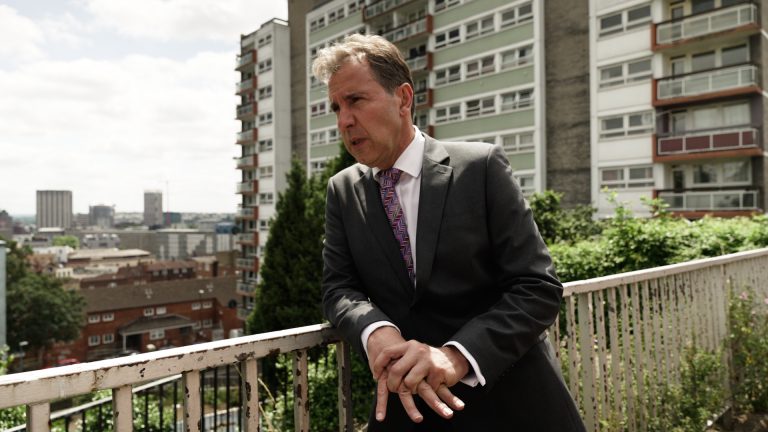
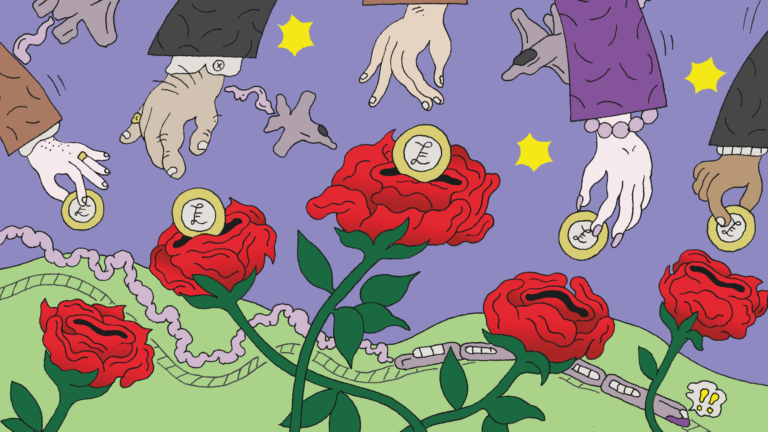
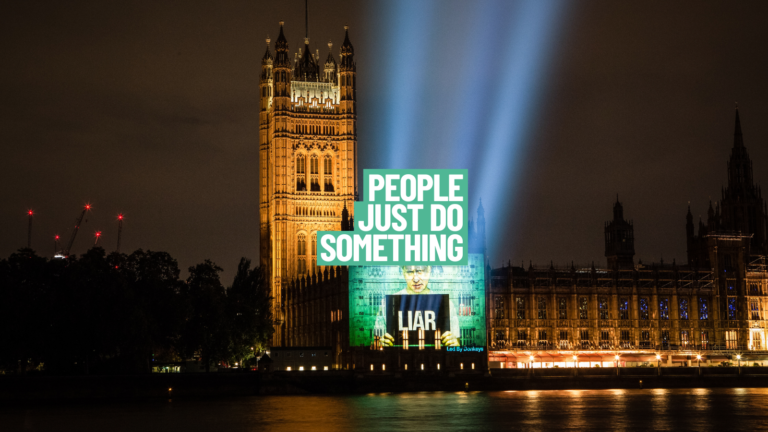

Report a comment. Comments are moderated according to our Comment Policy.
There will be election hustings on 25th April hosted by Bristol Disability Equality Commission for Disabled people to ask the main political parties what they intend to do to promote Disability Rights.
It is really important that they hear from Disabled people about the challenges we want them to take action on, and that we hear from them what their plans are to promote our rights and provide services that are fair for Disabled people.
Further information can be found here https://wecil.org.uk/local-election-hustings/ and there is an Easy Read version of that information here https://wecil.org.uk/local-election-hustings-easy-read/
Probably worth reminding people that the ID nonsense can be circumvented by registering as a postal voter.
Might of been a good time to bring up the boundary changes that may make a difference to which MPs will be standing in which areas.
For example, Thangam will thankfully no longer be my MP and I didn’t even to vote for someone else. Result ????
Thought not